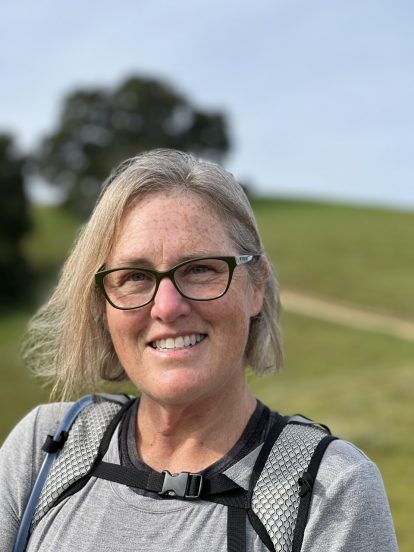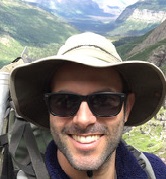Spring courses run from January 27 – May 25 (finals week is the week of May 20). All courses are in-person unless otherwise indicated. Courses required for a Certificate of Achievement in CRM (Conservation and Resource Management), NHR (Natural History and Resources) and UA (Urban Agroecology) are indicated in boldface at the end of the listing. For more on enrollment, go to https://www.merritt.edu/steps
Biology (BIOL) Courses:
BIOL 9 (lecture class 22629; lab class 22630): Marine Biology. Prof. Gregory Vose (gvose@peralta.edu). Introduction to the natural history of marine organisms: Basic concepts of biology and environmental science with some local focus on Northern California marine ecosystems. Lecture M/W 11-12:15; Lab M/W 12:30-1:45. 3 units. CRM; NHR; UA.
Environmental Management (ENVMT) Courses:
ENVMT 2 (lecture class 22631; lab class 22632): Introduction to Sustainable Environmental Systems. Prof. Ben Nelson (bnelson@peralta.edu). Interdisciplinary study of the impact of human civilization on the earth’s major ecological systems: Issues examined in historic, contemporary, and future settings, including both Western and non-Western contexts; material presented from a theoretical point of view, with a focus on core concepts and methods related to ecology, sustainability, human population, natural resources, wastes and pollution; reflection of how human economic, political, and ethical behaviors are inextricably interwoven with the environment; and presentation of environmental career options. Lecture M/W 3 – 4:15; Lab M/W 4:30 – 5:45 PM. 4 units. CRM, NHR, UA.
ENVMT 3 (lecture class 23279; lab class 23280): Social Issues in Agriculture. Prof. Elizabeth Boegel (eboegel@peralta.edu). Study of the social side of agriculture and sustainable food production/gardening: Investigation of social justice, food access, food security, and hunger issues on a local and national scale; current debates and conversations related to food systems (both industrial and alternative); and agricultural production and labor issues. Lecture Thursdays 9 – 10:50; Lab Thursdays 11 – 1:50. Don’t worry, there will be time for lunch. 3 units. UA.
ENVMT 8 (lecture class 23284): Introduction to Outdoor Education. Prof. Ben Nelson. Overview of nature/culture interpretation and education: Planning for age, theme, and place appropriate presentations leading towards employment opportunities in the environmental management field. Lecture Wednesdays 9 – 11:50. NHR.
ENVMT 35 (lecture class 22635, lab class 22636): Introduction to Urban Agroecology. Prof. Elizabeth Boegel (eboegel@peralta.edu). Introduction to the expanding production and distribution of healthy food and environmentally sustainable agriculture in and near cities: Organic and intensive agriculture, field methods, policy, economy, ecology, and equity. Practical solutions for ecological farming methods and community food security: Practical skills for creating an ecologically based biointensive garden; planning, developing, and sustaining small-scale urban food gardens for diverse housing types. Lecture Tuesdays 9 – 10:50; Lab Tuesdays 11 – 1:50. Don’t worry, there will be time for lunch. 4 units. CRM; NHR; UA.
ENVMT 57 (lecture class 22737; lab class 22738): Park Operations Practice and Skills. Prof. Dave Zuckerman (dzuckermann@peralta.edu). Hands-on experience in the practice of managing public parks and open spaces: Management of visitors, resource protection; maintenance of facilities. Lecture Thursdays 6 – 8:50; Lab Saturdays 9 – 11:50. 4 units. CRM; NHR; UA.
ENVMT 60A (lecture class 23285): Natural History of the Bay Area: The Local Parks. Prof. Ben Nelson (bnelson@peralta.edu). Survey of the natural history of the Bay Area: Climate, geology, geologic history, geomorphology, flora and fauna of selected Bay Area parks. Multiple meeting times; late start class. 3 units. NHR.
ENVMT 60C (lecture class 23287): Natural History of the Bay Area: Herpetology. Prof. TBD. Survey of the natural history of reptiles and amphibians of the Bay Area; includes on-site field studies in various state and regional parks. Multiple meeting times; late start class. 2 units. NHR.
ENVMT 61H (lecture class 23286): Natural History of the Bay Area: Butterflies and Moths. Prof. TBD. Survey and overview of the butterflies and moths of the Bay Area: Identification, ecology, natural history, and evolution of our local butterflies and moths. Multiple meeting times; late start class. 2 units. NHR.
Art Courses:
ART 166 (22341): Beginning Botanical Drawing. Prof. Shiela Metcalf. Exploration through drawing of basic plant structures: Recording details of various plant forms; emphasis on rendering form, color, and texture with graphite, ink pen, colored pencils, and watercolor. Online course. 2 units. CRM; NHR.
Landscape Horticulture (LANHT) Courses:
LANHT 2 (lecture class 23262; lab class 23263): Plant Materials: Tree ID and Culture. Prof. Laura Forlin (lforlin@peralta.edu). Identification and culture of trees used in Bay Area landscapes: Climate, soil, and water preferences; garden culture; pest and disease problems; and pruning and propagation. Hybrid class, multiple meeting times. 3 units. CRM; NHR; UA.
LANHT 5EB (lecture class 23265, lab class 23266): Plant Materials: Spring Native Plant ID and Culture. Prof. Stew Winchester (stewwinchester@sbcglobal.net). Identification and culture of fall native plants used in the landscape: Climate, soil, and water preferences; garden culture; pest and disease problems; and pruning and propagation. The lab includes classroom demonstrations and field trips to prominent Bay Area landscapes. Wednesdays 10 – 11:50; 1 – 3:50. 3 units. CRM; NHR; UA.
LANHT 10 (lecture class 22693; lab class 22694): Insect Pests. Prof. Eddie Dunbar (eddie@bugpeople.org). Identification and management of local arthropod pests and beneficial populations particular to ornamental plants: Emphasis on non-chemical methods of control; integration of methods used, and development of approaches best suited to controlling pests. Online lecture Thursdays 6-8:15 PM; lab 8:30-9:45 PM. 3 units. CRM; NHR; UA.
LANHT 23 (class 22389). Plant Terminology. Prof. Laura Forlin (lforlin@peralta.edu). Terminology used in identification of plants: Terms relating to roots, stems, leaves, flowers and fruit used in all plant identification courses and in Introduction to Landscape Horticulture. Online course, Thursdays 6-9:45. 3 units. CRM; NHR.
LANHT 28 A,B,C,D (lecture class 22276; lab class 22277 ). Permaculture Design. Profs. Elizabeth Boegel (eboegel@peralta.edu) and Genesis Rodriguez Hernandez (grhernandez@peralta.edu). Strategies and techniques of applied ecology/permaculture design and application for designing livable human communities: Observation of natural patterns, gardening in urban settings, water and nutrient recycling in the landscape, and an introduction to the Bay Area bioregion; emphasis on permaculture ethics and principles, soil fertility, composting, and synergistic plant associations. Lecture Wednesdays 10 – 11:50; Lab Wenesdays 1 – 3:50. 3 units. CRM; NHR; UA.
Geography (GEOG) Courses:
GEOG 1 (class 22266). Physical Geography. Prof. Teresa Williams (twilliams@peralta.edu). Basic elements of the earth’s physical systems and processes: Earth-sun relations, weather, climate, water, plate tectonics, landforms, soils, and ecosystems and their interrelationships and global distribution patterns. Online course. 3 units. CRM; NHR; UA.
Geology (GEOL) Courses:
GEOL 1 (lecture class 22467; lab class 22468). Introduction to Physical Geology. Prof. Teresa Williams (twilliams@peralta.edu). Survey of materials and structures comprising the outer portion of the earth, and geologic processes responsible for sculpturing the earth: Plate tectonics and mountain building; formation of minerals and igneous, sedimentary and metamorphic rocks; deformation of rocks by folding and faulting; and erosion of the land surface. Hybrid class. 4 units. CRM.
GEOL 21 (class 22511). Bay Area Field Studies. Prof. Teresa Williams (twilliams@peralta.edu). In-the-field introduction to the richness of the geologic environment: Emphasis on the basic geologic processes that shape the earth’s surface. Late start class. Mutiple meeting times. 1 unit. CRM.
Native American Studies (NATAM) Courses:
NATAM 76E (22672): California Indian Ecology on the Central Coast. Native American relationships to the California Central Coast: PreIndian environment; abundance; human-environment interactions; adaptations; challenges; environmentally situated lives; ethnoecology of specific tribal groups; beliefs and worldviews; norms and practices; ecological knowledge bases; resource management. 1.5 units. CRM; NHR; UA.
Nutrition (NUTR) Courses:
NUTR 31 (lecture class 22303; lab class 22304): Food-Production Systems. The functions of institutional food-service production: Menu development and standardization; forecasting, purchasing, storage, preparation and service; staffing, equipment selection and maintenance; evaluation of the food-service system; medical diets including texture and nutrient modifications; information technology in food service settings including budgeting, cost/inventory control, nutritional analysis, recipe development, production forecasting, menu production; selecting or upgrading systems software. Hybrid class. 3 units. UA.






